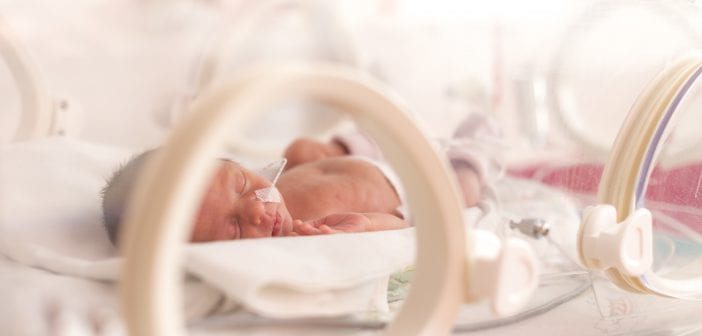Parents who have received a prenatal diagnosis know the pressure from medical professionals to abort their preborn child. There are many good doctors and nurses who care for each individual patient and family, however, the medical establishment has been infected with anti-Life bias that leads to a system that sees children with disabilities as unworthy of Life.
For parents of a child with Trisomy 18, this deadly discrimination can continue long after birth. As Texas Right to Life has previously reported, parents who seek treatment for the various complications associated with the condition can face many obstacles and pushback from doctors.
There are rare hospitals that are willing to treat children with Trisomy 18, who often suffer from heart defects among other challenges. Through social media and support networks, families are spreading the word and parents across the U.S. are choosing to go to hospitals that will treat their children with Trisomy 18 instead of leaving them to die.
One hospital known for this is Children’s Hospital in Omaha, Nebraska. Meredith Willard knows this firsthand. In an interview for Children’s, she described her family’s situation saying, “It’s like you’re on a sinking ship, and you’re throwing your child to a stranger and saying, ‘Save my baby.’ It seemed like that. It felt like a hand reached out and just pulled us up… At the time, I didn’t know what an advocate for children with trisomy 18 Dr. Hammel was; I just knew he was someone who said, ‘Yes.’”
Dr. Hammel is Dr. James Hammel, division chief of Cardiothoracic Surgery at Children’s Hospital and Medical Center in Omaha. Willard turned to Dr. Hammel and the integrated team of specialists with whom he works after her daughter, Rose, was diagnosed with Trisomy 18 at 12 weeks’ gestation.
Willard and her husband faced discrimination before finding Dr. Hammel. She said, “The doctors we were working with in California told us this isn’t life-compatible and that we could meet with the comfort care team … She wasn’t seen as a baby that was going to live.”
Willard was given a hopeless prediction for her daughter’s future; the only “help” she was offered was ending her daughter’s life in an abortion. Willard explained, “When I said I wasn’t going to terminate, there really was no more help for me there. I went weeks with no one.”
After learning that baby Rose would need heart surgery after birth, Willard began searching for a surgeon who would take her daughter as a patient. At every turn, she was denied and even called “cruel” for trying to do what she thought was best for her child’s life. Finally, the Willards found a team willing to treat their child. Willard says, “That Children’s in Omaha said they would operate on Rose just restored our hope in people.”
Dr. Hammel said this is common for families facing a Trisomy 18 diagnosis. He said, “The message the families get is almost uniformly fatalistic.”
He explained, “Most physicians view this as a hopeless diagnosis — but there is always hope. Yes, these kids have functional limitations, but there is plenty of room to make their life better … I’ve always said if I can improve a child’s chance of survival from five percent to 10 percent, I’m perfectly happy to take that on if that’s what the parents want to do.”
The overt discrimination against children with Trisomy 18 can be seen in the types of conditions for which they are denied treatment. Dr. Hammel said, “These are things that would be absolutely obligatory for a child without trisomy.” Too often, subjective “quality of life” assessments on the part of biased medical teams overrule the basic and humane requests for treatment made by loving families.
Thankfully, Rose, and many other babies like her, received the treatment they needed at a hospital that is willing to care for them as they would any other patient. Rose underwent life-saving heart surgery and continues to grow and develop. Her life has many ongoing medical challenges, but her family is grateful to have her and looks forward to seeing her develop more. Willard says, “Her brothers don’t have a huge issue with how different she is — they just see their sister.”
Fight fake news. Deliver the Pro-Life truth to 10,000 people by sponsoring an article like this one.

